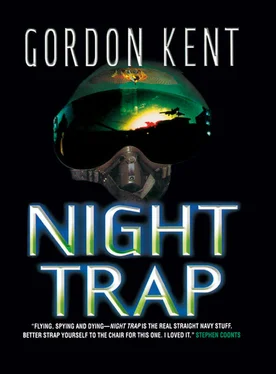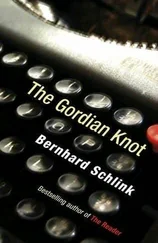So he sat in the command trailer and waited.
The box had arrived five nights before. It had been bolted on the main radar dish. The zealot who had brought it had said that it would see the infidels as they crossed into Iranian air space. This was a story for children, in Franci’s view; six years at the University of Buffalo, from which he had been forced home by threats to his family, convinced him that the box must somehow turn the dish into a (probably inefficient) passive detector. The zealot had sworn that when the blue-green light went on in the command van, the Americans would be coming.
And so they would be, Franci mused.
He had also seen the Revolutionary Guards bring in a missile launcher of their own, now standing well clear of the SAM battery. As usual, it looked like industrial scrap held together with string. The RGs loved toys, he thought—no, “Correction,” as his American friends used to say, all Iranians loved toys—look at the outboard boats mounted with machine guns, the taxi-mounted rocket launchers. Gadgets for a preindustrial theocracy.
The missile, when he had been allowed to glance at it uncovered, had looked to him like an ancient I-Hawk with the front end tarted up. The electrical engineer in him had cringed. It had looked like trouble to him. Big Trouble. Things meant to go bang were always big trouble for somebody unless they were properly designed and engineered.
So he had approached his own officer about it, although coming at the matter circumspectly, after the fashion of a stray dog approaching a kindly voice—sideways and ready for a kick.
“Ha, Rasi, and how is your wife?” he had said.
“She is well, soldier of the servants of God. Soldier, I am not to be addressed by name by you with, ah, hmm, them here.” He had nodded toward the shrouded missile, as if it represented the Revolutionary Guards in all their power. And their narrow-mindedness.
“Rasi, may your name be blessed,” Franci had said, not able entirely to suppress irony, “friend of all soldiers, I abase myself,” and he had started to kneel, causing the officer to wince and urge him to his feet. Enough was enough, obviously.
However, they had got to the real subject. “These Revolutionary Guards,” Franci had said. He had nodded toward the missile. “ The Hour is almost upon us, and their creation is, um, in the sun.”
“What? Hour? What hour?”
Franci had got excited. He could deal with idiots only so long. “ The Hour! Are you incapable? The Hour when our camouflage is supposed to be up! When everything must be covered! When—!” He had swallowed, flapped his arms up and down and slapped his sides. Then, more calmly, “When Tehran tell us we must be invisible to the eyes the Americans have put in the heavens to circle the earth.”
“You go far beyond yourself to shout at me. This is not proper. I will note it. Somewhere.” The officer had pulled at his open collar as if he wished for a more formal, more dignified uniform. “The Guard take care of themselves. Maybe they have their own camouflage. We do not tell them what to do. They are the Guard!”
Franci suspected they were shepherds who couldn’t read a word of the Koran, but he didn’t dare say so. Instead, he had said with the measured slowness of a man talking to a child, “They will give us away. They will give away the missile we are not supposed to see. They will get us all killed.”
“It is the will of God.”
Franci had sighed. He had not quite dared to say that the will of spy satellites worked no matter what God—or at least the Revolutionary Guard—might say.
So now, tonight, he sat in the command trailer and smoked his fifteenth Marlboro and watched the blue-green light that was supposed to come on when the Americans arrived.
And what would happen when it did?
Skipper Craik walked slowly around his plane, looking into every opening, running his hand lovingly down her wings to her body, then crouching to look at her landing struts and gear. He never thought of the process as sexual, never saw the plane as a woman, although he would concede he had seen men run their hands over horses this way.
He glanced up to make sure that her chaff and flare cartridges were full, and as he did so was vaguely aware that the sailor coding his plane with an IFF gun was a stranger. Probably a recode, he thought; they changed IFF at the last minute, sometimes. Still, his BN had already got a sweet and sweet on deck, so why change it now? The question was an annoyance, low priority, not even a worry; he’d ask the kid what happened when they were on the cat.
He ran his hand up inside her jet intakes, checking for FOD or debris. Once in a while, some sailor with a grudge put a coin up there. He’d heard of a can of concrete, in another squadron. The fact that he had never found anything didn’t stop him. It was part of his ritual. He checked his car the same way.
If he checked it himself, nothing could go wrong.
Alan was finally ready. The frontseaters had already walked to the plane, but Senior Chief Craw refused to be hurried, even seemed to be dawdling. The delay covered nicely for Alan’s perpetual confusion about what order to put his flight gear on.
Master Chief Young, the senior enlisted maintenance man, met them at the back door to the ready room. He was kitted up for the flight deck.
“Got a present for you, sir,” he said to Alan.
Alan looked around a little foolishly. Master Chief had a way of doing that to him. Going on the mission was all the present he wanted; what else could there be?
“On deck,” the Master Chief said. They followed him down the passageway to the sponson, then up behind the tower.
All around them, the carrier was preparing for battle. Bombs were going by on carts; fuel lines were being laid out to planes; aircrews were checking them while lastminute maintenance was done. The heavy stink of kerosene filled the air.
Right at the elevator-deck edge sat Christine, long since repainted to cover the jokes left by their sister squadron on the Roosevelt . The facelift made her seem young again, and, caught in the glare of the launch of an early-cycle F-14 on burner, she was the most beautiful plane Alan had ever seen—a tribute to his loyalty, to say the least. Bulbous, big, and awkward, she towered over them like a bad dream.
Alan belatedly switched on his blue light and bent to perform his one preflight responsibility, the chaff and flare pods; the Master Chief grabbed his shoulder, turning him up and toward the fuselage, instead. He pointed.
Alan had to look for some seconds, then found it just below the TACCO’s window. There, stenciled on the gray hull, it said: LTJG ALAN CRAIK.
His name on the plane.
It meant acceptance—more, approval. And permanence. And what’s more, Rafe must have okayed it. Or even suggested it? Alan stumbled into the aircraft, knowing he was blushing and glad for the darkness, unable to speak. He almost forgot to preflight his seat.
Mick Craik sat on the cat, his eyes wandering over the instruments as he took his baby to full power. The earth moved, but the gauges were good; she was a goer. He and the kid began the priest-and-acolyte formula of prelaunch checks. He reached for his inner calm, found it, and pulled it over him like an old, loved coat. He wished he could do the same for the kid. If his boy were going, he’d want—
Where is Alan? he wondered. Surely Harry wouldn’t let him go on a live one like this. So you’d want him to treat your kid specially, and let somebody else’s kid go? he asked himself. He was no good at self-doubt; he pushed the question away.
He thought the S-3 tankers were being put too close to the coast—big, fat, dumb grapes waiting for some Iranian MiG jock to bag them. He had made the objection to Staff; a lot of good it had done. At any rate, he didn’t want Alan up in one of the tankers tonight. One Craik in the air was plenty. Anyway, Alan had a different future: he had a kind of smarts that his father felt he lacked, the kind that could take you to admiral. Mick Craik, he thought, would retire where he was.
Читать дальше












